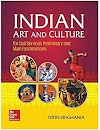Social Justice: Vulnerable Sections
"A lack of transparency results in distrust and a deep sense of insecurity"
Syllabus of Social Justice
Vulnerable Sections
1. Child & Issues related to Child
- Concept of Child (Who is Child?)
- Rights of a Child
- UNCRC
- Child Issues
- Child Sexual abuse
- Statistics & Concept
- Causes
- Consequences
- Government efforts
- POSCO Act
- Lacunae
- Way forward
- Child Marriage
- Child Labour
- Juvenile Delinquency
Child - The definition of Child is not uniform, it varies as per the requirement and various acts of the government. As per the Indian Constitution, usually a child is defined as a person below the age of 14 years.
Also, According to the Child Labour Prohibition Act, A child is defined as a person below the age of 14 years.
As per the Factories Act, a Child is defined as any person below the age of 15 years.
As per the Juvenile Delinquency Act, a Child is referred as a person below the age of 16 years.
As per the POCSO (Prohibition of Children Against Sexual Offence) Act, a Child is defined as a person below the age of 18 years.
According to ILO (International Labour Organisation), any person below the age of 18 years is referred as a Child.
Child Rights - United Nations' Convention for the Rights of the Child (UNCRC) has defined child as any person below the age of 18 years.
UNCRC also provides some basic rights to each and every Child. They are -
- Right to Survival
- Right to Development
- Right to Participation
- Right to Protection
Click here, to get full Article on UNCRC.
India has ratified the CRC (Child Rights Convention) in 1992, i.e., India need to have a domestic policy to ensure these rights.
Issues wrt India - Here in India, there is an ambiguity with respect to the definition of child, i.e., there is no such clear cut definition of a child.
In 2013, Government came up with the National Policy for Children (NPC - 2013).
NPC - 2013
- It recognised every individual below the age of 18 years as a child.
- It identifies '4 key priorities area'
- Survival
- Development
- Participation
- Protection
- To give effect to the policy, Ministry of Women and Child Development has prepared NPAC (National Plan of Action for Children).
- To monitor the implementation NCAG (National Co-ordination and Action Group) was established.
NPAC works on the 4 key priority areas, i.e., survival, development, participation and protection of the children.
NPAC wrt Survival of the Children
- Universal immunisation
- Universalisation of maternal and child health care
- Robust infrastructure with respect to pre-natal, peri-natal and post-natal care
NPAC wrt Development of the Children
- Extends the ambit of Right to education act to incorporate pre-schooling training and secondary education (i.e., it helps to ensure the 4A's of the education - Availability, Accessibility, Affordability and Awareness).
NPAC wrt Participation of the Children
- Ensures active participation of children in planning and implementation of the programs concerning the.
- For example - Bal Panchayat (an initiative by UNICEF) - It is a participative consultative approach.
NPAC wrt Protection of the Children
- Strengthens legislative, administrative and institutional mechanism for child protection to ensure vision zero, i.e., Zero tolerance (or no tolerance) with respect to child protection.
Child Sexual Abuse
Statistics
- CRY (Child Relief and You) - based on the reports of NCRB (2016-17), there has been increase in 20% on child abuse.
- Ministry of Women and Child Development -
- The incidences of child sexual abuse is shrouded in secrecy.
- 53% of the children are subjected to some or other form of sexual abuse.
- Within which, in more than 90% of the cases, the person is of trust and faith, i.e., act has been committed by a known person. However only 6% of the cases are reported.
Causes of Child Sexual Abuse
1. Socio-economic causes
- Low bargaining power
- Lack of attention due to dual burden in dual career families
- Disintegration of joint families (lack of agency of social control)
- Poverty
- Patriarchy
- Rigid Casteism
- Lack of awareness among the children with respect to abuse
- Lack of safe places
- Lack of democratic parenting
- Dysfunctional families
- Lack of state institutional care for children without families
- Corruption of value system
- Objectification and Commodification of Child (for example - Child Pornography)
2. Psychological causes
- Psychopaths
- Victim of Child abuse
- Broken window theory
- Lack of deterrence due to stigma associated leading to poor reporting
Broken window theory - If children are not reprimanded for small pity offence, then in the later age of life, the probability of committing heinous offence is very high.
Also, the stigma associated with the child sexual abuse resulted into less reporting (or no reporting), which further aggravated the situation as there is no such fear and hence no deterrence.
"Fear is the mother of morality"
POSCO Act 2012
- It is gender neutral act. i.e., girl child as well as boy child are protected under this act.
- It clearly defines Child (as a person below the age of 18 years irrespective of gender).
- It defines 'Sexual Abuse' of all kinds such as -
- Aggravated sexual abuse
- Non-Aggravated sexual abuse
- Penetrative sexual abuse
- Non-penetrative sexual abuse
- Sexual harassment
- Child pornography
- There are also special provision for the children and speedy trial of the convicts.
- Special Courts
- Special Prosecutor
- In camera recording
- Translator
- Compensation
- In case of aggravated assault, the Onus of innocence is on the accused.
- There is no such time limit in filing a complain.
- NCPCR (National Commission for Protection of Child Rights) and SCPCR (State Commission for Protection of Child Rights) are established as monitoring agency.
- It mandates investigation has to be completed within 60 days and trial within 8 months of filing the complain.
Supreme Court has observed that POSCO is failing to serve the purpose (because of low reporting and delay in judgement). As a result, Ministry of law and justice has created FastTrack Special Courts.
1023 FastTrack Courts will be established for speedy disposal of rape and POSCO Act cases.
The FastTrack courts will be established for 1 year. It will have 1 Judicial member and 7 staff member. It functions as a full time institution.
Responsibility of setting up of FastTrack Courts lies with the State and UTs government.
It is initiated as a centrally sponsored scheme.
- Core States - 60:40
- North Eastern States, Sikkim and 3 Himalayan States - 90:10
Ministry of law and justice has formulated this scheme.
It will be linked to national judicial data grid.
It is to be established under National Mission for Safety of Women.
It includes -
- FastTrack Special Courts
- Forensic
- National registry for sexual offender
- Re-habitation of victim
- Raising awareness
- Sensitisation of Children
Still, 389 districts has reported more than 100 cases of POSCO are pending.
POSCO Amendment Act 2019 & POSCO Rules 2020
POSCO Act was amended in 2019 and the POSCO Rules of 2020 is introduced. The amendment made the following changes -
- In case of Penetrative Sexual Assault - The act increases minimum punishment from 7 years to 10 years. It also provides for imprisonment between 20 years to life with fine (if child is below the age of 16 years).
- In case of Aggravated Penetrative Sexual Assault - Two more grounds were added -
- It now includes the assault which results into the death of child and the assault committed during the natural calamity
- It increases the minimum punishment from 10 years to 20 years and the maximum punishment as capital punishment.
- In case of Aggravated Sexual Assault - Two more offences were added -
- Assault during the natural calamity and assault administered using any chemical or hormone to child for attaining early sexual maturity.
- In case of Child Pornography - It defines it as any visual depiction of sexually explicit conduct that involves child such as photography, video, digital or computer generated image. It also increases the punishment of storing pornographic material from 3 years to 5 years with or without fine. It added two more offence -
- Transmitting, displaying, distributing such material except for the purpose of reporting it.
- Failing to destroy or delete or report pornographic material involving child.
POSCO Rules 2020 -
- Mandatory police verification of staff of all institutions dealing with children.
- State government to formulate a child protection policy based on zero tolerance.
- Periodic training with respect to sensitisation of all stakeholders regarding child safety and protection.
- Prepare age appropriate educational material and curriculum for children with respect to personal safety, emotional and mental well being, child helpline number, etc.
- Orientation program and courses for police personnel and forensic experts for capacity building.
- Reporting of pornographic material with respect to child is mandatory.
Note - The UN General Assembly has declared November 18
as the World Day for the Prevention of and Healing
from Child Sexual Exploitation, Abuse, and Violence.
Way forward
- Rules (as discussed earlier)
- Both severity and certainty of the law is the need of the hour.
- Attitudinal change in the society by treating them as survivor rather that the victim.
- Judicial implementation of POSCO both in letter and spirit.
- Responsible and restrain journalism.
- Social rehabilitation and reintegration of the children in the society.
- Proper social counselling
- Parental counselling with respect to sexual abuse.
- Creation of safe places is the need of the hour.
- Value based education system
- Destigmatisation of sex education
Question for Practice
Critically analyse to what extent POSCO Act has been able to address the problem of Child Sexual Abuse in India.
- Introduction: Statistics
- Linking Para: Introduce POSCO and its provisions
- Body: Analysis (Pros and Cons)
- Conclusion: Briefly mention way forward
Status of POSCO
- Law has bot been able to produce expected deterrence.
- Proportion of child victims in rape cases has increased.
- Higher number of bails are granted under POSCO.
- Conviction rate under POSCO is very low (2016 - 28.2%).
- 89% of cases are pending (as per 2019 report).
Challenges with respect to POSCO Act implementation
- Poor reporting due to the fear of ostracisation.
- Lack of awareness among the child with respect to sexual abuse. Hence, fails to report.
- Lack of infrastructure (for example - Shortage of skilled police force, Lack of sensitised officials, overburden judiciary, etc)
- Delayed in justice (due to overburden judiciary).
- Lack of trained prosecutors.
- Lack of adequate compensation for child victim.
- NCPCR, SCPCR have not been able to perform the function of monitoring, evaluating and creating awareness with respect the act.
- Lack of accountability as their functioning is not open to public scrutiny.
Way forward
- Nationwide assessment of impact of POSCO Act.
- Police reform
- Sensitisation of police
- Trained police officials
- Overhauling of criminal justice delivery system
- Specialisation of judges and prosecutors
- Training and sensitisation of all stakeholders (judicial and medical officers)
- Strengthening of forensic department
- Emerging crimes need to be checked
- Improve compensation and support system, etc
Previous Article - Impact of Globalisation on Indian Society
Next Article - Child labour, Child marriage & Juvenile delinquency
Notes on other subjects
Optional Subject
Note - This is my Vision IAS Notes (Vision IAS Class Notes) and Ashutosh Pandey Sir's Public Administration Class notes. I've also added some of the information on my own.
Hope! It will help you to achieve your dream of getting selected in Civil Services Examination 👍





0 Comments